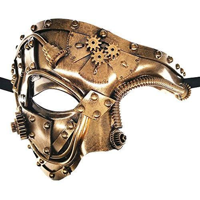Quentin Coldwater typ osobowości MBTI
Osobowość
"Jaki typ osobowości jest {profilename}? {profilename} jest typem osobowości {mbti} w mbti, {enneagram} - {iv} - {tritype} w enneagram, {big5} w Big 5, {sociionics} in Socionics."
The Magicians is, in my opinion, the journey of an unhealthy and emotionally immature INTP that becomes a healthier and empathetic one by the end of the trilogy. I don't understand why he would be an ISTJ; I don't see Si at all. A Si dominant would most likely stick to the routine and living a normal life rather than fantasizing about Fillory or magic being real things. And he doesn't plan things at all: is spontaneous, like a Ne user, he always improvise. But he does use Si, though it's portrayed as his tertiary function, showed sporadically, like the way he always comes back to Brakebills, or sticks to Fillory too much, despite being other different (and maybe even better) worlds to travel to. The way he analyzes everything from his own perspective, developing different explanations due to Ti-Ne, is also like a classic INTP. He comes to many different conclusions about magic, Brakebills itself, other people, and is always exploring and analyzing things inwardly. Also, Quentin's pedantry and his constant "I'm smarter than you" attitude is like the stereotypical of an unhealthy INTP; and his inferior Fe seems clear to me, which he develops later on, by the ending of the second book (when he meets that boy in the ship, at Fillory, or at the very ending of that book), and is very strong in the last one. He starts to care about the others, doesn't blame people, and is a nice person to Janet Chatwin (I think it was Janet, the one who was with him all along the third book), despite her being indirectly the one who made Quentin lose his job. And is also shown (SPOILERS OF THE THIRD BOOK) in the way he behaves with Alice, once he makes her human again. Which was a very Ti-Ne process in my opinion: analyzing how things work, developing different conclusions based on his internal logical values. And, having this space to make spoilers, in order to explain myself better, his Ti-Ne is also very clear to me once his father died in the same book: a Si-Te user would most likely accept that his father was just a normal person, who had a lot of privacy, but that's all. But Quentin doesn't do that: his dominant Ti, with his auxiliar Ne, (and Si memories, connecting things to his experience at Brakebills) makes him come to the conclusion that his father was a magician, and had gone to Brakebills. Or, at least, that he was hiding something: he had another, secret and exciting life he was hiding. So then, Quentin starts to dig in, looking for a lot of information, unlocks his father's computer in order to make connections, seeking patterns, hidden messages, and that sort of stuff, in order to discover his dad's secret identity. But no, he was just a simple man. So he gets disappointed about that, as a lesson that "this is the real world", and things aren't the way his Ne thought they would be. This happens a lot throughout the book: with his specialty at magic, he always believed it was something so special that no one knew what it was, and had considered a lot of different options; but no, it was just fixing small things. (END OF THE SPOILERS) Quentin, is also said by The Magicians' author, Lev Grossman, is based on how Lev used to be; and Lev Grossman, because of his writing (with a lot of different ideas shown on his stories [Ne], how he tries to make these magical stuff seem logical [Ti], the way he writes about how he used to be [Si], and how his books try to have a good message at the end, in order to help people, [Fe]) comes to me as an INTP. And, also, Lev Grossman, once writing the parts about Julia and all of the highly intellectual acquaintances, was a very Ti-Ne experience to me.





















